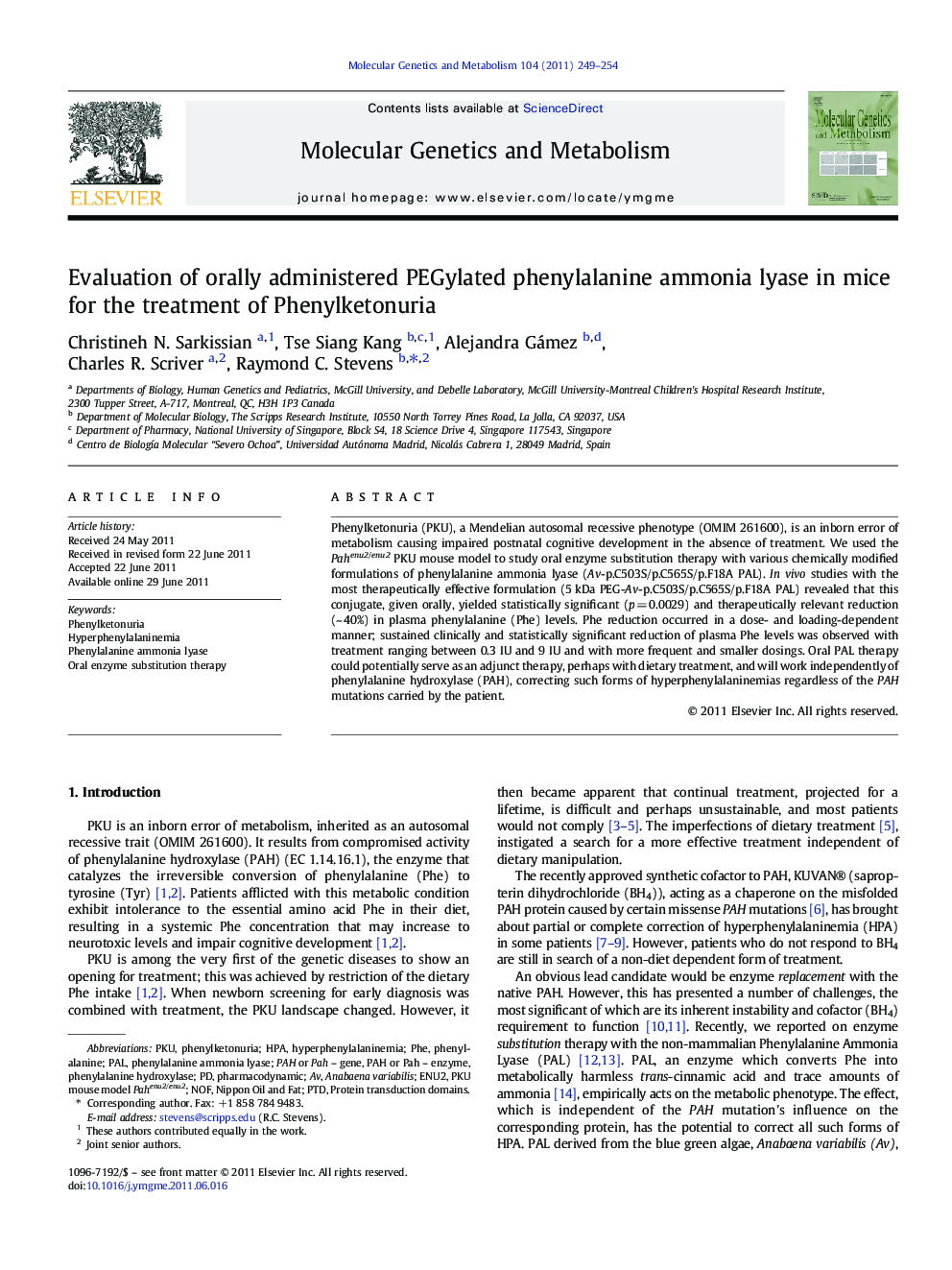| Article ID | Journal | Published Year | Pages | File Type |
|---|---|---|---|---|
| 10833945 | Molecular Genetics and Metabolism | 2011 | 6 Pages |
Abstract
Phenylketonuria (PKU), a Mendelian autosomal recessive phenotype (OMIM 261600), is an inborn error of metabolism causing impaired postnatal cognitive development in the absence of treatment. We used the Pahenu2/enu2 PKU mouse model to study oral enzyme substitution therapy with various chemically modified formulations of phenylalanine ammonia lyase (Av-p.C503S/p.C565S/p.F18A PAL). In vivo studies with the most therapeutically effective formulation (5 kDa PEG-Av-p.C503S/p.C565S/p.F18A PAL) revealed that this conjugate, given orally, yielded statistically significant (p = 0.0029) and therapeutically relevant reduction (~ 40%) in plasma phenylalanine (Phe) levels. Phe reduction occurred in a dose- and loading-dependent manner; sustained clinically and statistically significant reduction of plasma Phe levels was observed with treatment ranging between 0.3 IU and 9 IU and with more frequent and smaller dosings. Oral PAL therapy could potentially serve as an adjunct therapy, perhaps with dietary treatment, and will work independently of phenylalanine hydroxylase (PAH), correcting such forms of hyperphenylalaninemias regardless of the PAH mutations carried by the patient.
Keywords
Related Topics
Life Sciences
Biochemistry, Genetics and Molecular Biology
Biochemistry
Authors
Christineh N. Sarkissian, Tse Siang Kang, Alejandra Gámez, Charles R. Scriver, Raymond C. Stevens,
